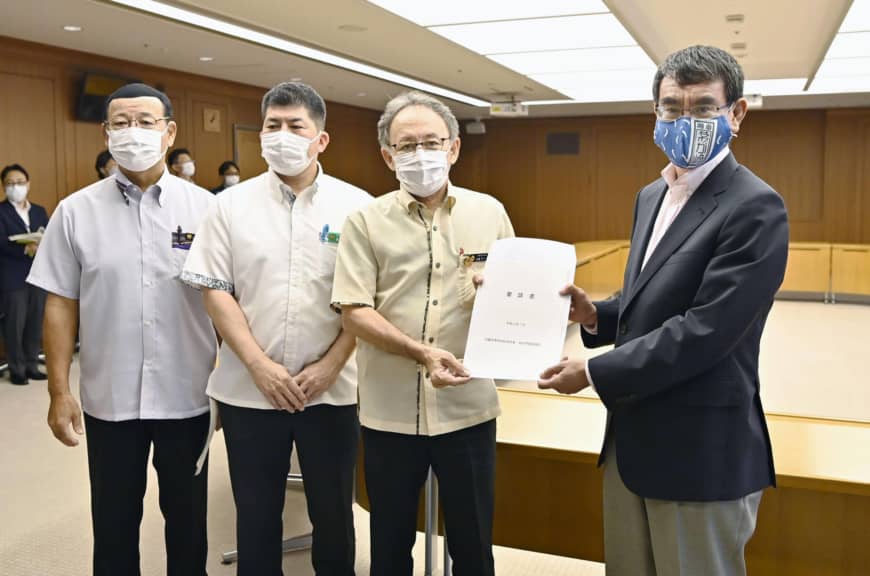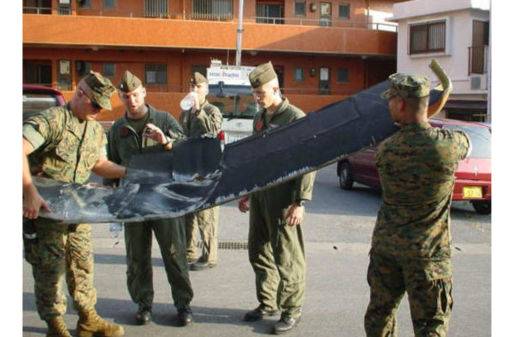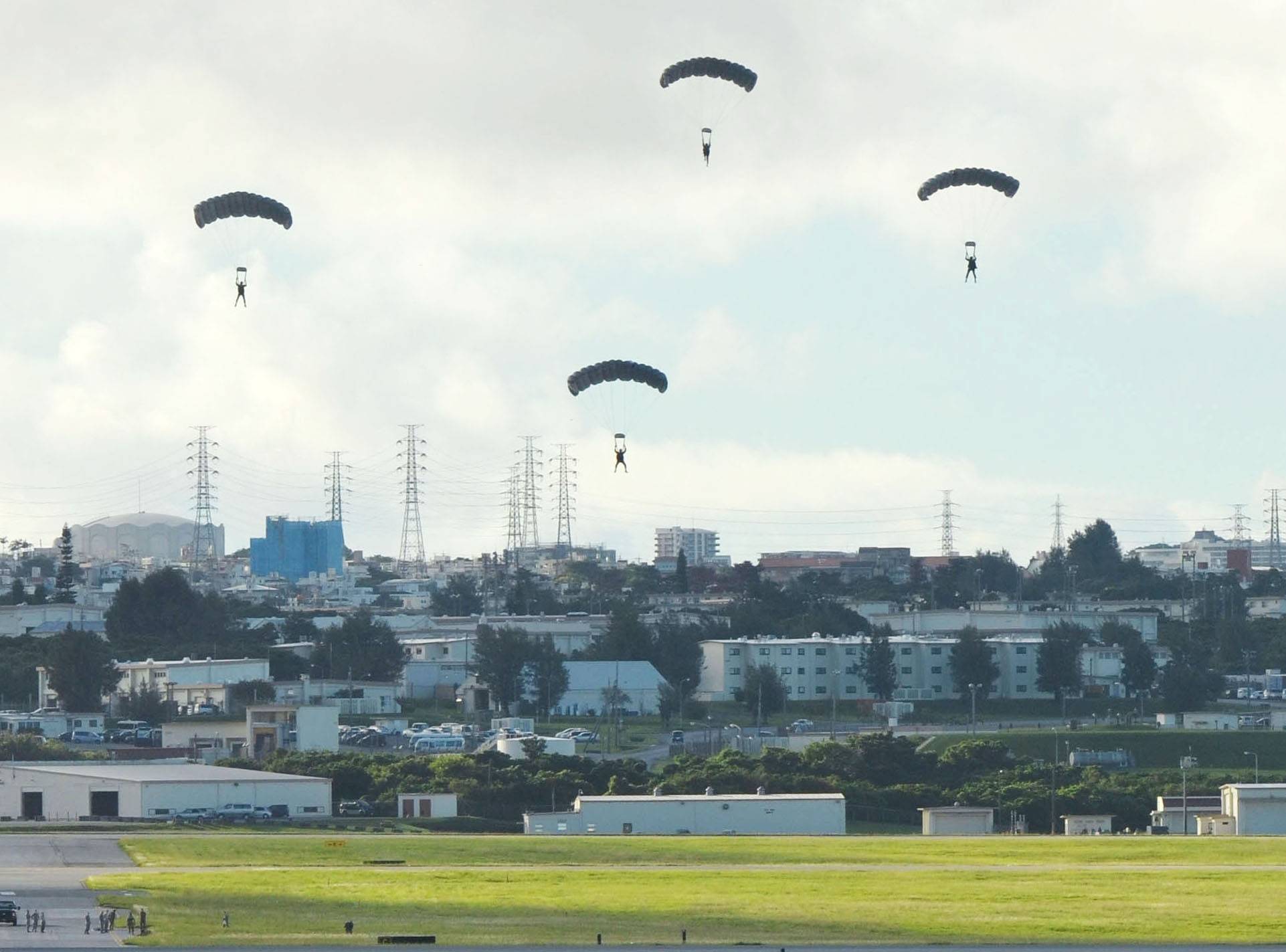
By Tomohiro Osaki, August 3, 2020
From Japan Times
Recent outbreaks of the novel coronavirus at U.S. military bases in Okinawa have cast renewed light on what many consider to be extraterritorial rights enjoyed by American servicemen under the decadeslong U.S.-Japan Status of Forces Agreement (SOFA).
Under the framework, members of the U.S. armed forces are granted special dispensation from “Japanese passport and visa laws and regulations,” which enables them to fly directly into bases and circumvent the rigid virus testing regime overseen by national authorities at airports.
Their immunity to immigration oversight is the latest reminder of how SOFA personnel are all but “above the law” in Japan, echoing a litany of similar instances in the past where the bilateral framework stood in the way of national authorities’ efforts to investigate, and pursue jurisdiction over, crimes and accidents involving American servicemen — particularly in Okinawa.
The Okinawa clusters have also illustrated anew how Japan’s authority as a host country is weaker than some of its peers in Europe and Asia that likewise accommodate the U.S. military, reigniting calls in Okinawa for the framework’s revision.
Thorny history
Signed in tandem with the revised U.S.-Japan Security Treaty in 1960, the bilateral agreement spells out rights and privileges to which members of the U.S. forces are entitled in Japan.
The agreement is an unavoidable necessity for Japan’s hosting of the U.S. military, on which the strictly pacifist country relies heavily as a deterrent.
But the terms upon which the framework is based are often seen as disadvantageous toward Japan, raising doubts over sovereignty.
Aside from the immigration free pass, it grants the U.S. exclusive administrative control over its bases and curtails Japan’s authority over criminal investigations and judicial proceedings where U.S. servicemen are involved. There is also exemption from Japan’s aviation laws, allowing the U.S. to conduct flight training at low altitudes that has frequently caused noise complaints.
Some improvements have been made in the form of guidelines and supplementary agreements over the years, but the framework itself has remained untouched since its inception in 1960.
The apparent inequality inherent to the pact has come under repeated, heavy scrutiny every time a high-profile incident has occurred, sparking calls for its revision — particularly in Okinawa.

As the nation’s largest host of U.S. military bases, Okinawa has historically born the brunt of heinous crimes by servicemen, including rapes of local residents, as well as plane crashes and noise problems.
According to Okinawa Prefecture, 6,029 criminal offenses were committed by American servicemen, civilian employees and families between 1972 — when Okinawa was returned to Japanese control — and 2019. During the same period, there were 811 accidents involving U.S. aircraft, including crash landings and falling parts.
Residents in the vicinity of Kadena Air Base and Marine Corps Air Station Futenma in the prefecture have also repeatedly sued the central government seeking an injunction of, and damages over, midnight flight training by the U.S. military.
But perhaps the biggest cause célèbre was the 2004 crash of a U.S. Marine Corps Sea Stallion helicopter on the campus of Okinawa International University.
Despite the crash happening on Japanese property, the U.S. military took over and unilaterally cordoned off the scene of the accident, denying Okinawan police and firefighters access inside. The incident highlighted the murky line of sovereignty between Japan and the U.S. under the SOFA, and as a result prompted the two parties to establish new guidelines for off-base accident sites.
Déjà vu?
The perception of the U.S. military as a virtual sanctuary unshackled by Japanese law has been reinforced during the novel coronavirus pandemic, with its servicemen able to enter the nation according to their own quarantine protocols that until recently didn’t include mandatory testing.
As per Article 9 of the framework that affords the military personnel immunity to passport and visa regulations, many from the U.S. — the world’s biggest novel coronavirus hot spot — have been flying directly into air bases in Japan without undergoing mandatory testing at commercial airports.
The U.S. military has put incoming individuals into a 14-day quarantine known as restriction of movement (ROM). But until recently it wasn’t mandating polymerase chain reaction (PCR) testing on all of them, testing only those who exhibited symptoms of COVID-19, according to a foreign ministry official who briefed reporters on condition of anonymity.
It wasn’t until July 24 that U.S. Forces Japan (USFJ) took a belated step toward mandatory testing, announcing that all SOFA-status personnel — including military, civilians, families and contractors — would be obliged to go through a COVID-19 exit test prior to release from the mandatory 14-day ROM.
Some SOFA personnel, however, do arrive via commercial aviation. Those individuals have been undergoing tests at airports as provided by the government of Japan, regardless of whether they show symptoms or not, the foreign ministry official said.
With Americans in principle unable to enter Japan at the moment due to travel bans, incoming SOFA members have essentially been treated on par with Japanese nationals seeking re-entry.
“As far as servicemen are concerned, their rights to enter Japan are guaranteed by the SOFA in the first place. So to reject their entry would be problematic as it contradicts the SOFA,” the official said.
Differing attitudes and authority
The situation has contrasted starkly with other nations.
Although similarly subject to a SOFA with the U.S., neighboring South Korea successfully ensured the testing of all U.S. military personnel upon arrival much earlier than Japan did.
The United States Forces Korea (USFK) didn’t respond to requests to clarify when exactly the mandatory testing policy began.
Its public statements, however, suggest the rigid testing regime by the military started as early as late April. A notice as of April 20 said that “any USFK-affiliated individual arriving to South Korea from overseas” would be tested twice during a 14-day quarantine — upon entry and exit — and would need to show negative results on both of those occasions to be released.
A separate statement as of Thursday implied the same testing policy remained in place, with the USFK touting it as “a testament to USFK’s aggressive preventative control measures to stop the virus’ spread.”
Akiko Yamamoto, an associate professor of security studies at the University of the Ryukyus and an expert on the SOFA, said the U.S. military’s differing attitudes toward testing between Japan and South Korea are likely to have little to do with what their respective SOFAs spell out.
Given both versions confer on the U.S. exclusive authority to administer its bases, “I don’t think South Korea is granted under the SOFA any greater advantage than Japan when it comes to testing U.S. servicemen upon arrival,” Yamamoto said.
The difference, then, is believed to be more political.
South Korea’s aggressive testing policy from the get-go, coupled with the fact that U.S. bases in the nation are concentrated around the political epicenter of Seoul, suggest “the Moon Jae-in administration likely pushed really hard for the U.S. military to implement stringent anti-infection protocols,” Yamamoto said.

Elsewhere, the lopsided nature of the Japan-U.S. SOFA may have played a role in causing major differences.
A 2019 report by Okinawa Prefecture, which investigated the legal standing of the U.S. military overseas, illustrated how countries like Germany, Italy, Belgium and the United Kingdom had been able to establish greater sovereignty and control American troops with their own domestic laws under the North Atlantic Treaty Organization (NATO) SOFA.
“When American troops relocate from one NATO member state to another, they need host countries’ permission to transfer, and host countries are authorized to conduct quarantine of incoming personnel at their own initiative,” Yamamoto said.
Australia, too, can apply its own quarantine laws to the U.S. military under the U.S.-Australia SOFA, according to Okinawa Prefecture’s probe.
Each U.S. Marine deploying to Darwin, the capital city of the Northern Territory of Australia, will be “screened and tested for COVID-19 upon arrival in Australia, before being quarantined for 14 days at specially prepared Defence facilities in the Darwin area,” Linda Reynolds, Australian defense minister, said in a statement in late May.
Plugging the gap
Concerns are now growing that the virtual free pass granted to SOFA individuals arriving in Japan will remain a loophole in efforts by the central government and municipalities to combat the spread of the novel coronavirus.
“With the contagion still rapidly spreading in the U.S. and any American at potential risk of getting infected, the only way to ward off the virus is to regulate the inflow of arrivals from the U.S.,” said Yamamoto. “But the fact that the SOFA personnel can travel freely for simply being affiliated with the military accelerates that risk of infections.”
Even though the USFJ has now declared testing on all incoming personnel mandatory, it will still be done unsupervised by Japanese authorities, prompting the question of how stringent the enforcement will be.
In his meeting with Foreign Minister Toshimitsu Motegi and Defense Minister Taro Kono last month, Okinawa Gov. Denny Tamaki demanded the central government take steps toward the suspension of SOFA members’ transfer from the U.S. to Okinawa, as well as revision of the SOFA to make them subject to Japanese quarantine laws.
Perhaps aware of such criticism, the USFJ issued a rare joint statement with Tokyo last week. In it, it stressed that “significant additional restrictions” were now imposed on all Okinawa installations as a result of the elevated health protection status, and vowed to make the disclosure of cases more transparent.
“The GOJ and USFJ reaffirm their commitment to ensure day-to-day close coordination, including with the local governments concerned, and between the respective health authorities, and to take the necessary actions to prevent further spread of COVID-19 in Japan,” the statement said.








